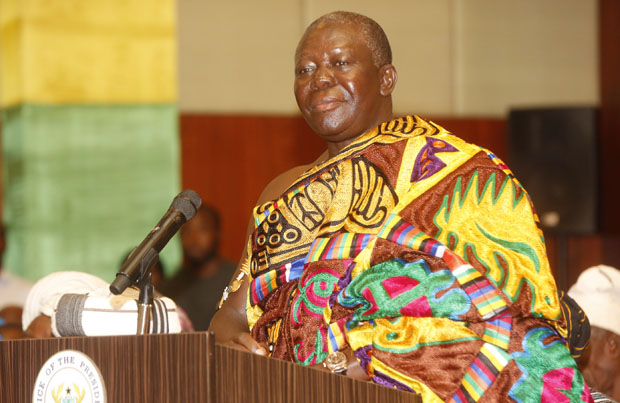Otumfuo Osei Tutu II
The Asantehene, Otumfuo Osei Tutu II, has tasked political actors to consolidate effort towards eliminating the system of political patronage which has robbed state institutions of the needed autonomy to build robust system of governance.
He said that the elements of ‘clientelism’ and patronage, as a dominant feature of post 1960 one party state which is characterised by party loyalty becoming the source of all rewards has filtered into contemporary multi-party democracy.
“The twist and turns of our political history continue to cast their shadow over our institutions and the overhang of our conflicted past has robbed some of them of their senses of security and left them too fragile for their task,” he said.
A state is said to be clientelistic when politicians provide individualised benefits only to political supporters in exchange for their votes.
Benefits could be in the form of jobs in the public sector, cash payments, political favours or public goods.
The Asantehene made the remarks on Friday when he gave a public lecture on the topic, “Leadership: Strengthening Democratic Institutions for National Development” at the 3rd Annual University of Professional Studies Accra (UPSA) leadership lecture series in Accra.
He expressed admiration for the ability of developed nations to remain influential and strong amidst tragic failings within their governance structures largely due to a sustained effort of building robust institutions which overtime becomes the shock absorbers of social dysfunction.
“By contrast it has to be said that no African state could survive the shenanigans of Brexit, or the inherent instability of Italian governments or even the prolonged protests of the yellow vests in France” he said.
In spite of Ghana having similar institutions backed by the 1992 constitution, he identified the failure in “clearing the deck of the garbage from the past” as a canker that continued to infest the constitutional order of the country.
“To be sure about strengthening our democratic institutions we need to liberate ourselves from the tyranny of compulsive politics and the subversion of neutrality of public services” he said.
He further observed that, accusations of cronyism and nepotism against presidents since the promulgation of the 1992 constitution would linger on due to highly politicised nature of public service whose autonomy had been compromised by a recruitment process that entailed political considerations.
“Sadly no Party since 1992 has shown the desire to reverse the situation. On the contrary, each Party felt obliged to sustain it because it provides the only means to reward supporters” he added.
He also called for a drastic change of attitude from seeing politics as an avenue to amass personal wealth to politics as an avenue of service which seeks to create an environment for citizens to flourish.
Osei Tutu II also advocated total decoupling of membership of legislature from the executive arm of government, allowing courts retain chunk of its accrued revenue and also institutionalising the role of non state actors such as traditional rulers, professional bodies and academia in national development.
He further called for support of the Electoral Commission in executing its mandate as he “urged all concerned to smoke the peace pipe so the commission can reset the button and begin preparation for the conduct of our next elections”.
Among dignitaries present at the programme was the former president of the Ghana, John Agyekum Kufuor.
By Issah Mohammed


